Students Gain Insights on Leveraging Program to Launch Careers
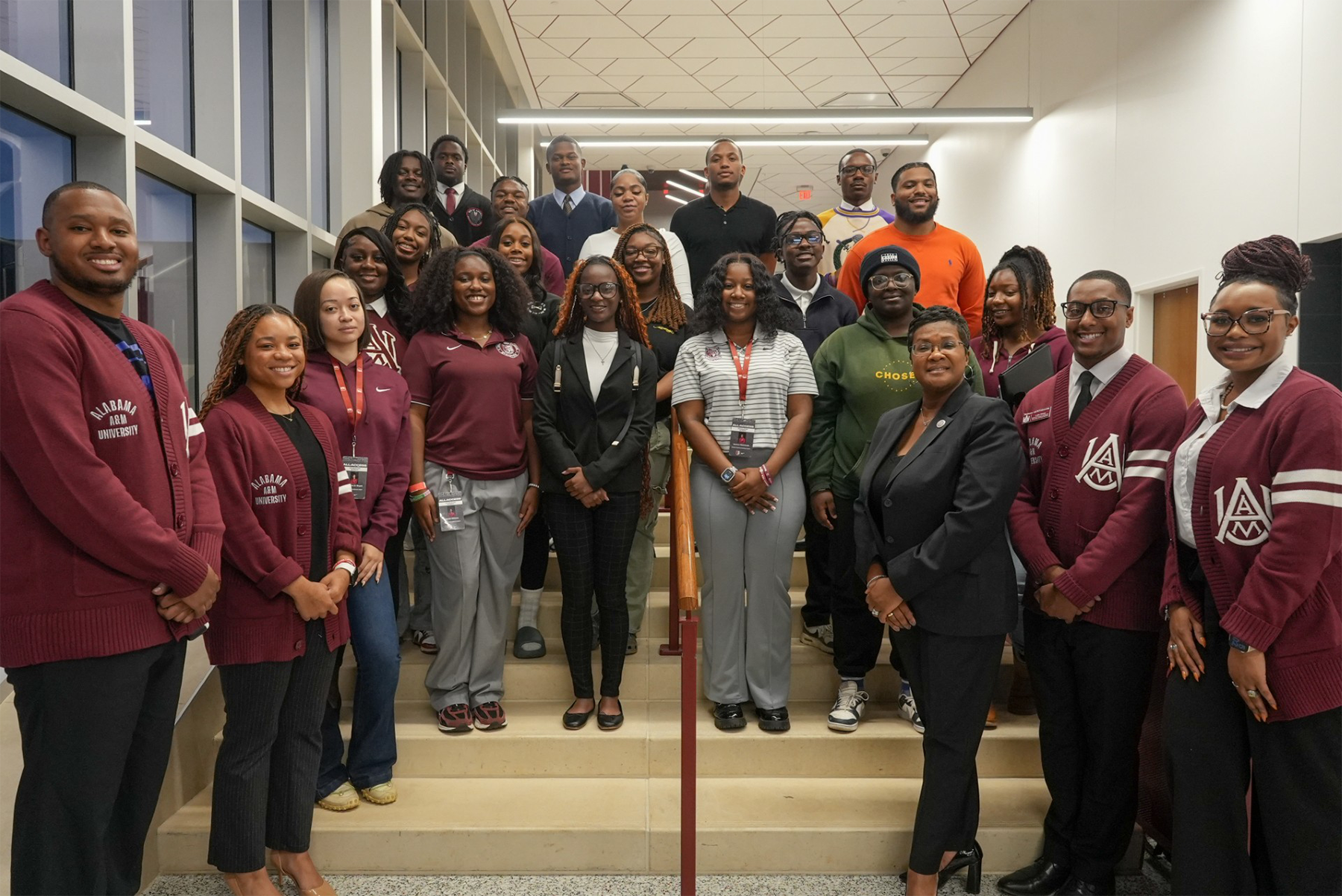
Alumni Return to The Hill for First-Ever NBA HBCU Fellowship Panel
Alabama A&M University welcomed four distinguished alumni to The Hill on Friday, Nov. 14, for the first-ever NBA HBCU Fellowship Panel Discussion. The program offered current Bulldogs an inside look at one of the nation’s most competitive sports-industry internship opportunities while highlighting the success of AAMU graduates who have launched careers through the fellowship.
Established in 2022, the NBA HBCU Fellowship Program offers undergraduate and graduate students from Historically Black Colleges and Universities a 10-week paid internship with the NBA, WNBA, and league office. Fellows work in departments such as marketing, communications, finance, partnerships, and social impact, helping to build a pipeline of diverse talent prepared to lead across the sports industry.
The alumni panel included Amirah Ali (’25), former Cleveland Cavaliers diversity, equity and inclusion (DEI) and social impact fellow, now working in marketing at PepsiCo; Jaycie Coleman (’21, ’23), former global partnerships fellow with the Denver Nuggets and Atlanta Hawks, now serving as social media coordinator at Pyramid Sports Group; Brian Hill (’23), former accounting and finance fellow with the Brooklyn Nets and Detroit Pistons, recently completing his MBA and pursuing opportunities in professional sports; and Collin Malone (’23), former Houston Rockets marketing fellow, pursuing his MBA at AAMU, and AAMU’s marketing & media relations coordinator. Daryka Reeves, Executive Director of University Events, served as moderator.
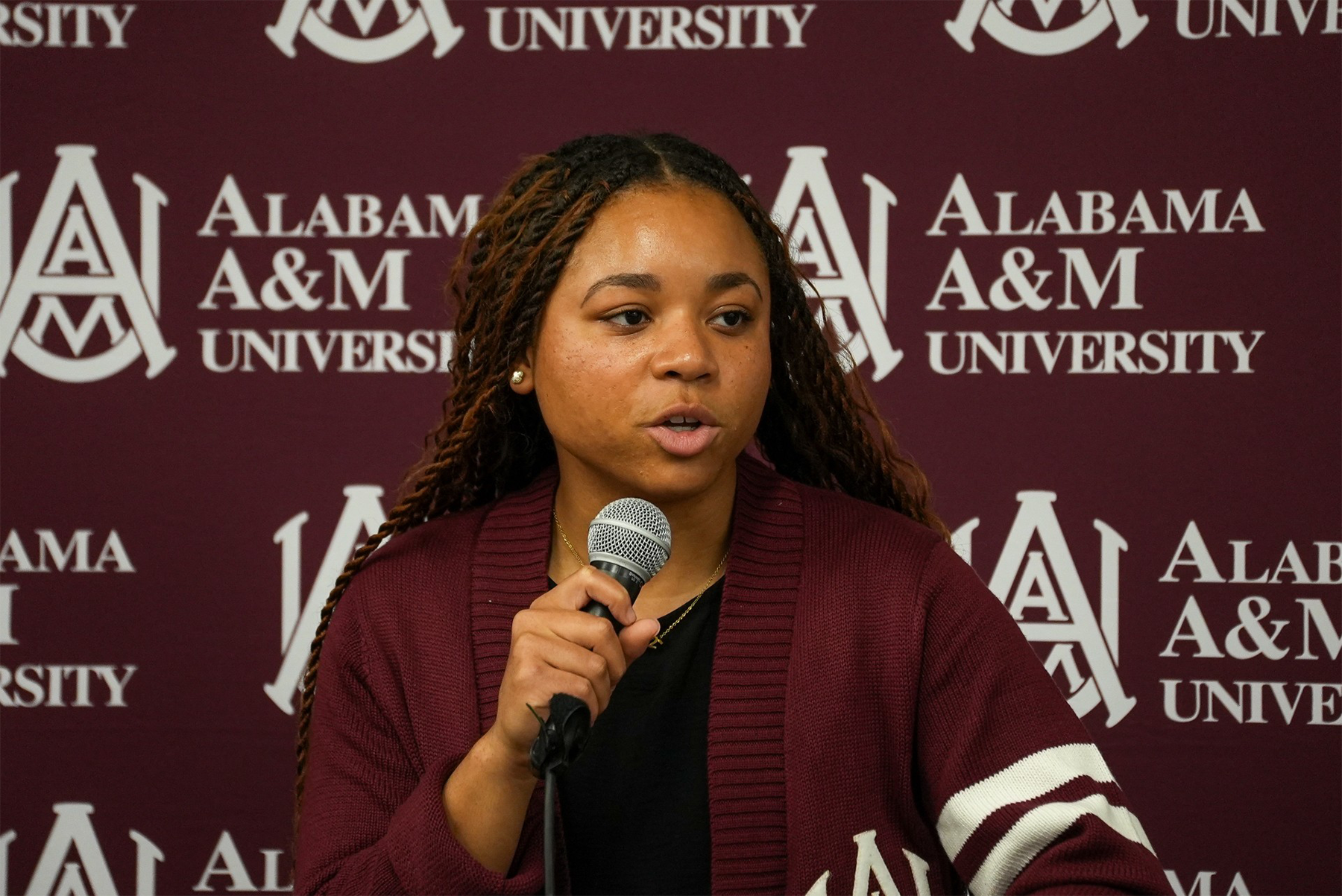
A core message echoed throughout the discussion: AAMU students belong in the NBA HBCU Fellowship Program. “We want to see more Bulldogs involved,” said Ali. “The HBCU network in this fellowship is unlike anything I’ve ever seen. The experience is everything, and we hope that talking about it ignites the fire for more students to apply.” Ali, who worked in AAMU Athletics as a student, noted that the fellowship helped prepare her for success after graduation. “The grit and work ethic I developed in the sports world continue to serve me well in my role at Pepsi,” she said. “I still have a deep appreciation for collegiate athletics, and I can see myself staying connected to that world in some way in the future.”
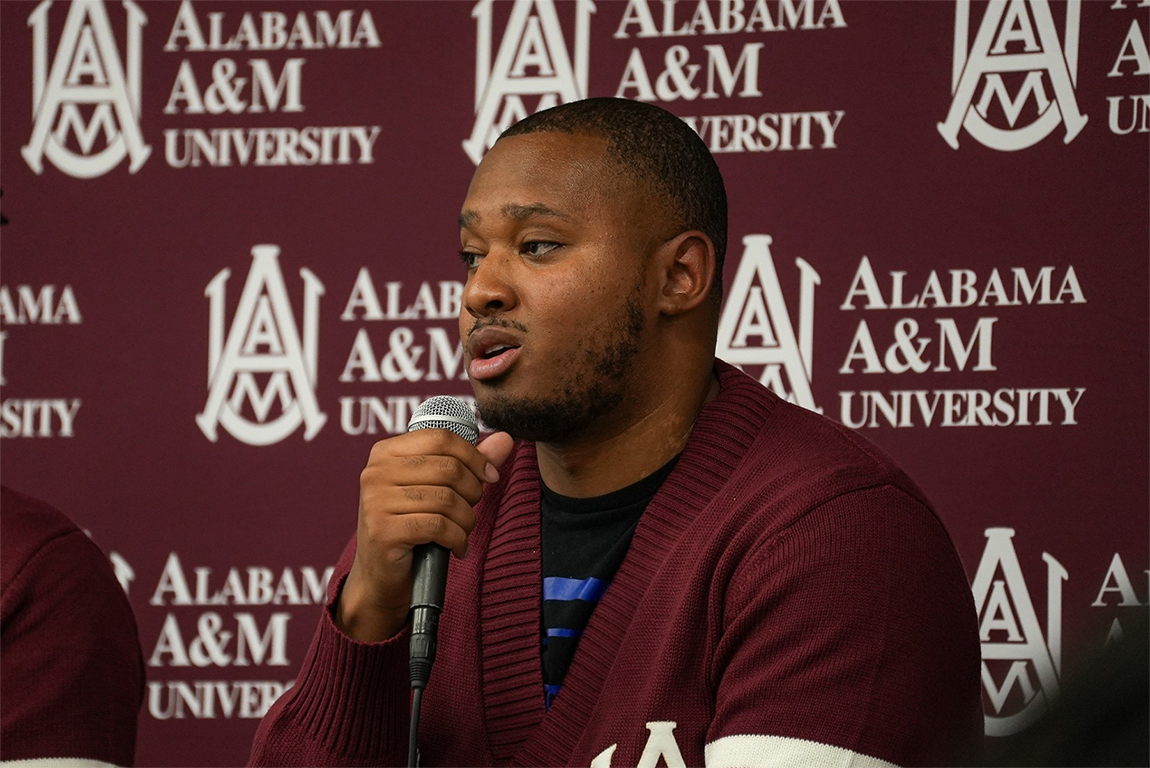
For Hill, the experience was both educational and rewarding, offering tremendous growth through two NBA HBCU Fellowships. “I had never been to New York, and I didn’t know a single soul,” he recalled of his first fellowship with the Nets. “I kept hearing, ‘Ask questions.’ So, I pushed myself to connect with people across departments, which helped me grow both socially and professionally.” His second fellowship with the Pistons provided even deeper insight into the business of sports – from budgeting activations to presenting ideas directly to leadership. “Engaging with people throughout the organization gave me a clearer understanding of how the entire business operates,” he said.
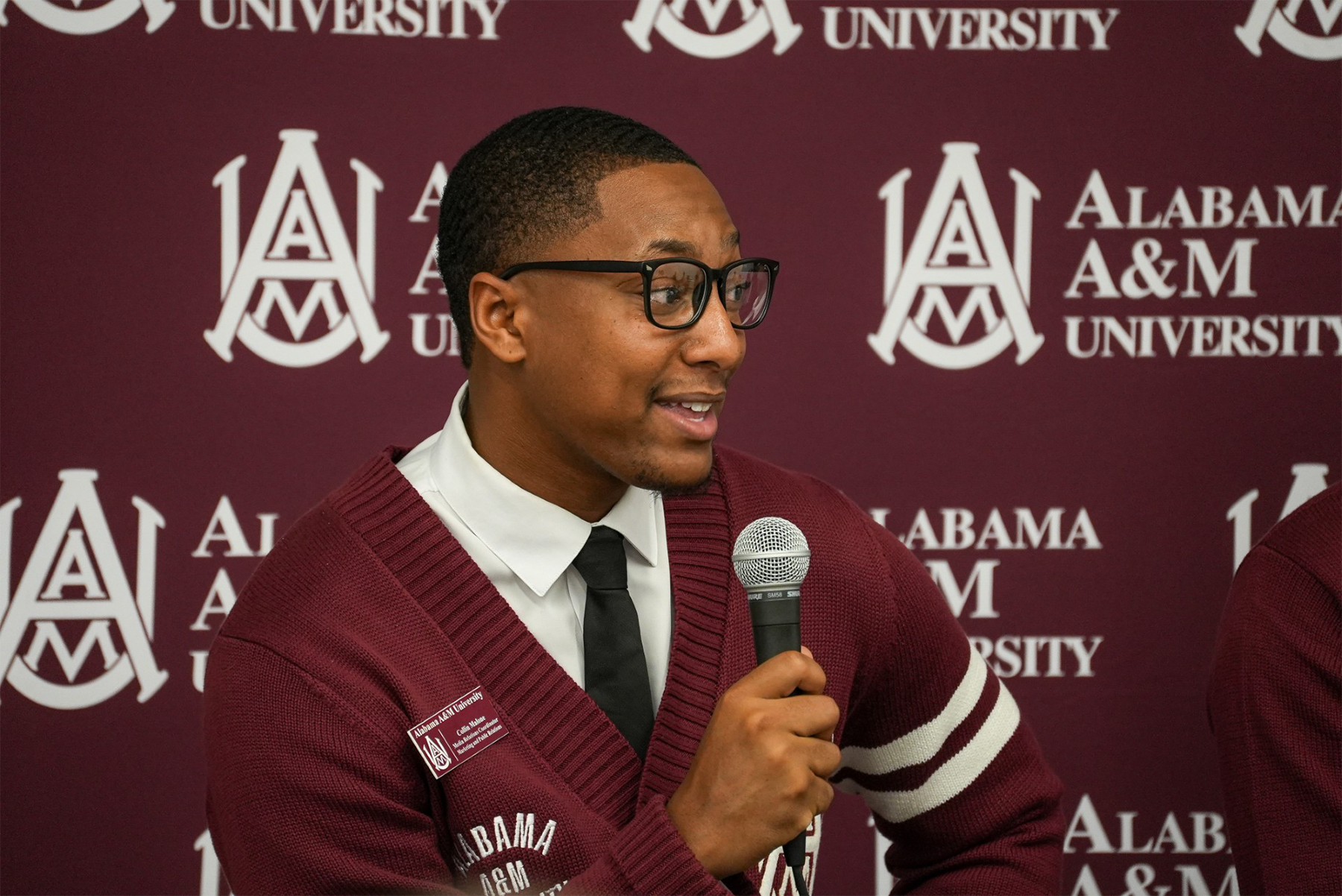
Malone shared a similar experience with his Rockets fellowship. “Watching a basketball game, you see the players and the referees, but there’s an entire team behind the scenes making it all happen,” he said. “From early mornings to late nights, every detail matters. Experiencing that firsthand was eye-opening and has prepared me well for my career today.”
Coleman, who completed two global partnerships fellowships with the Nuggets and Hawks, described the program as life-changing. “It truly shaped my career and perspective,” she said. “We say ‘Start Here, Go Anywhere.’ This program is designed specifically for HBCU students, which makes it a rare and valuable opportunity. Make the most of it.”
In addition to the panel, students participated in breakout sessions on marketing, partnerships, accounting and finance, and DEI. Alumni shared their responsibilities, expectations, and key lessons from their fellowships while offering guidance on applying and interviewing. They emphasized the importance of asking questions early, starting projects promptly, networking consistently, and staying focused on the opportunity. “If you’re selected, make the most of every moment,” Coleman advised. “Also, keep in mind that while you may have time to see friends and family, this program is super competitive, so really take advantage of it.”
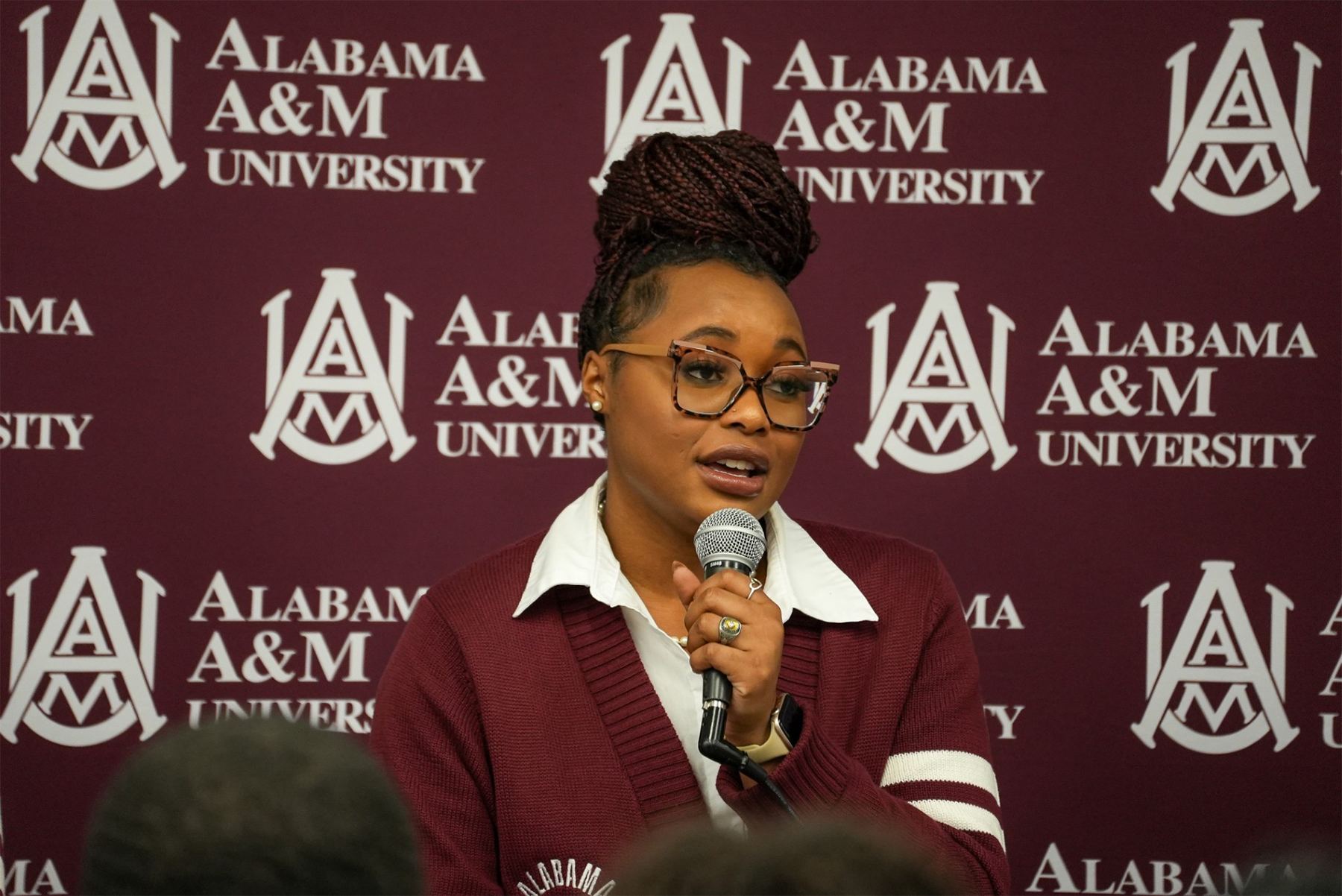
Panelists also discussed their end-of-internship capstone projects. Malone developed a youth council initiative and supported a major draft night event. Coleman built a partnership pitch across multiple sports properties. Hill and his team designed statewide engagement strategies, while Ali analyzed DEI theme nights across the NBA and its affiliate leagues. These projects strengthened the fellows’ portfolios and contributed to team strategies.
They also emphasized that personal growth was just as valuable as professional experience. Ali spoke about learning to embrace mistakes. “The beauty of being an intern is that you’re supposed to make mistakes – it’s how you learn,” she said. “Now, in the corporate world, I’m comfortable owning my mistakes and growing from them.” Coleman noted that her graduate assistantship in AAMU’s theater program provided unexpected but invaluable preparation for high-pressure roles in partnerships and events. Hill added that the fellowship taught him the importance of confidence and initiative. “You never know who is watching your work,” he said. “Every task is an opportunity to show what you bring to the table.”
The alumni said they shared their experiences to inspire more students to apply for the fellowship. Applications for the 2026 NBA HBCU Fellowship are now open through December 5, 2025. “As students, we are fully capable of seizing these opportunities,” Malone said. “We hope to see even more Bulldogs in these rooms.”